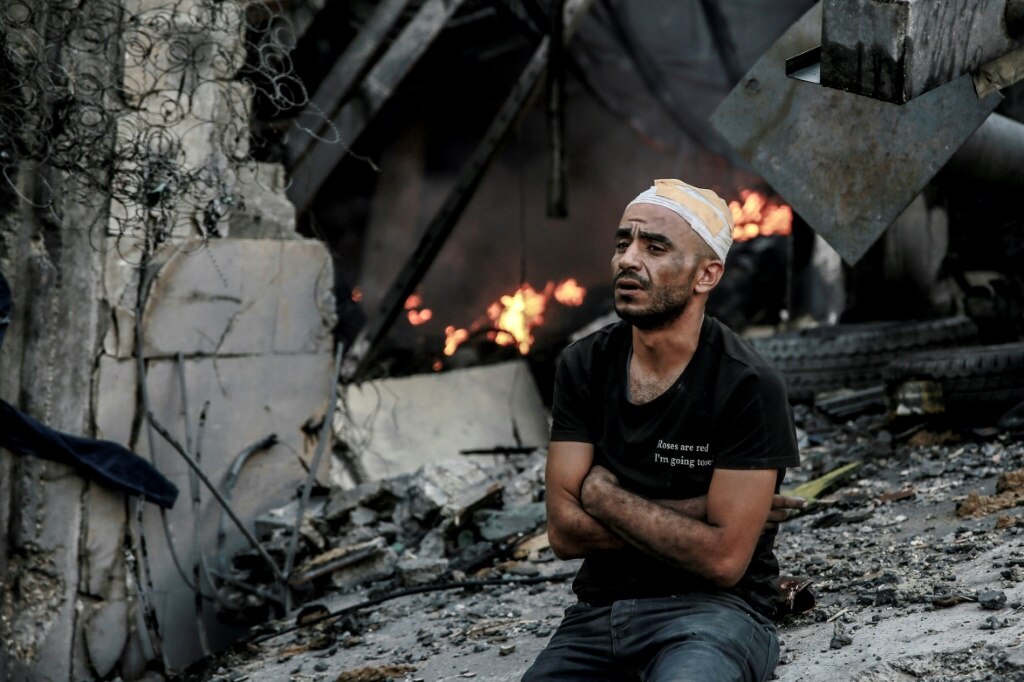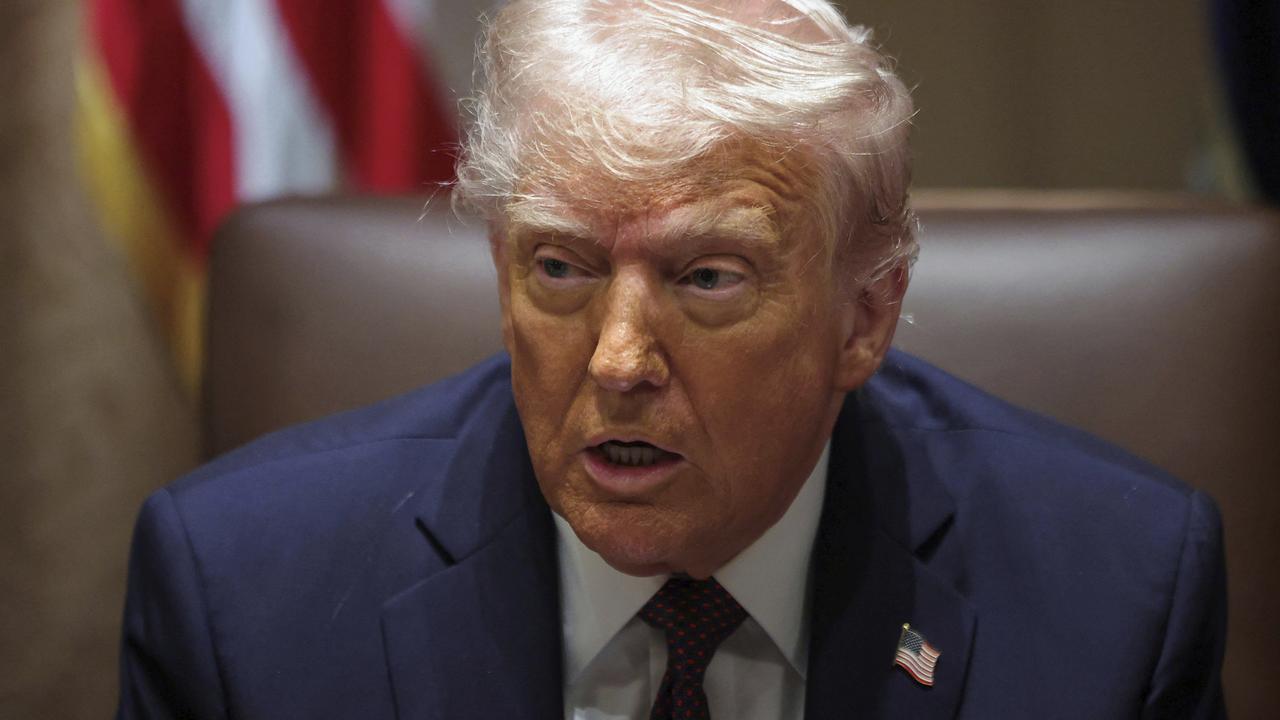Why Israel won’t back down against Hamas
As humanitarian organisations plead for a ceasefire in Gaza, a leading military analyst in Tel Aviv reveals why Israel is determined to annihilate Hamas. Warning: Graphic
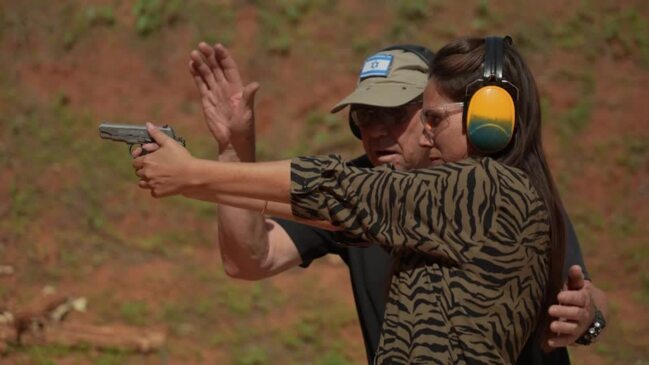
World
Don't miss out on the headlines from World. Followed categories will be added to My News.
This war was different from its outset. When Hamas militants on the Gaza Strip broke through a border security fence in the early hours of October 7, massacring 1400 Israelis and taking some 200 others hostage, it was clear this was not just another Israeli/Palestinian conflict. This was shock and awe. New tactics, and appalling new horrors.
“(It’s) a new and concerning development [from Hamas],” Senior Lecturer in International Relations at Flinders University Dr Jessica Genauer said.
“The mass taking of hostages including a large number of civilians and foreign nationals is unprecedented, is likely to draw in foreign states, complicates Israel’s military operation in Gaza, and will prolong the current round of conflict.”
The new tactics from Hamas also prompted an entirely new response from Israel.
Rather than containing Hamas through targeted attacks to take out key assets and leaders – a policy known in Israeli military circles as “mowing the grass” – Prime Minister Benjamin Netanyahu announced a switch to an entirely new approach: nothing short of Hamas’s complete annihilation.
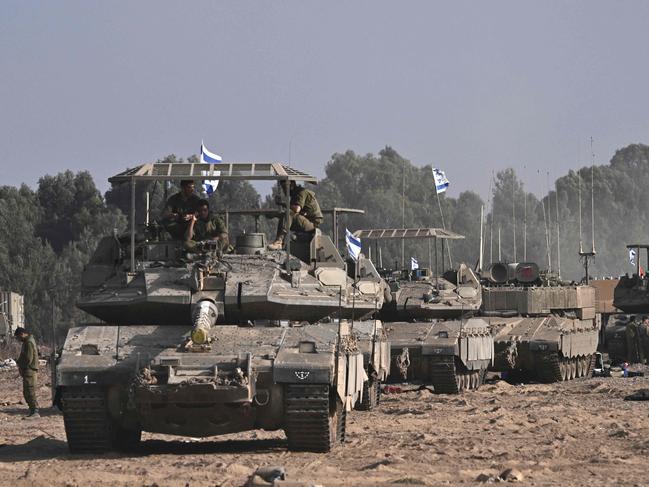
Israeli military analyst Benjamin Anthony said it marked a massive shift in government policy.
“There has been since 2006 a great effort made by Israeli policymakers and senior defence establishment figures to never speak in terms that are total when it comes to fighting against Israel’s enemies,” he said.
“That’s because in 2006 then Prime Minister Ehud Olmert, at the beginning stages of the second Lebanon war against Hezbollah, said the goal of the state of Israel was to completely destroy Hezbollah – and that is not what occurred.”
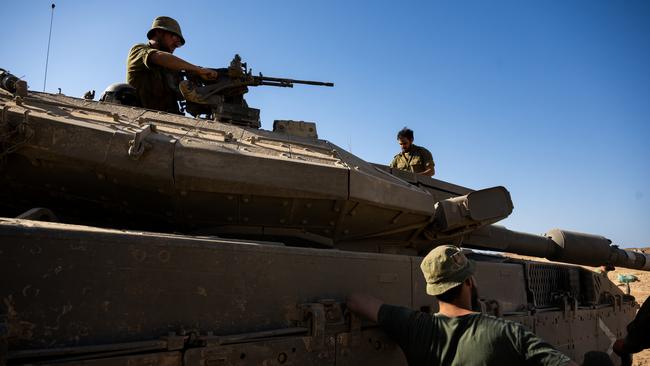
Since then, the language and the goals from Israel’s leaders had moderated, Mr Anthony said.
A former Israeli Defense Forces [IDF] soldier who participated in operations on the West Bank, Mr Anthony described “mowing the grass” as a “non-strategy” and a “non-policy” that meant conflicts ended “with the same lack of conclusion, and the same sense of foreboding that we would have to return there two or three years hence.”
“But that language has now been altered, and we’ve seen a return to this call to destroy Hamas,” he said.
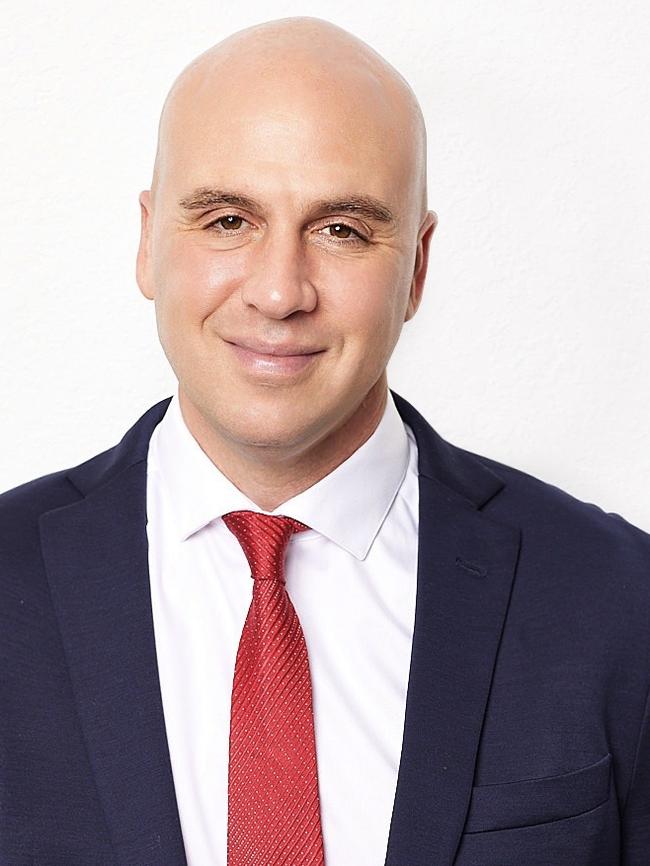

The past three weeks have seen the opening salvos towards the achievement of that goal: continuous bombardment of the Gaza Strip, at a devastating human cost.
Hamas-controlled health authorities in the Gaza Strip have put the death toll at more than 7000, and claimed 40 per cent of fatalities are children. Their claims have not always been authenticated by other sources, but the footage of injured children crying in overrun hospitals reveals just a fraction of the genuine suffering being experienced by civilian Palestinians.
A third of Gaza’s 35 hospitals were now closed after being damaged by air attacks, or they had run out of fuel for ambulances, the UN reported this week.
The second stage of Israel’s campaign will be the ground assault on Gaza – an operation that did not roll out immediately, Mr Anthony said, because of the shift in the goal from containing Hamas to destroying it, but also because of the presence of the hostages.


The first four hostages released by Hamas did not change that group’s bargaining position at all, Mr Anthony said.
“The only hostages released have been more of a burden,” he said. “(Hamas) gain nothing with elderly women with health complications being held hostage.”
He also grimly noted the few statements Hamas had made about releasing hostages so far had related to dual nationals only, rather than Israeli citizens.
The move into Gaza will pose key challenges for the IDF, not the least of which is the “Gaza metro” – the elaborate series of underground tunnels built by Hamas to move about undetected and store munitions and prisoners.
Mr Anthony said Israeli intelligence on the tunnel network was “very up to date” and several IDF units had been trained specifically for fighting inside the tunnels.
“There is great readiness for subterranean warfare … but it’s going to be complex, it’s going to be slow and grinding, and it will have to be sustained,” he said.
Political support for Netanyahu’s goal of destroying Hamas will be tested by the inevitable fatalities, Mr Anthony said.
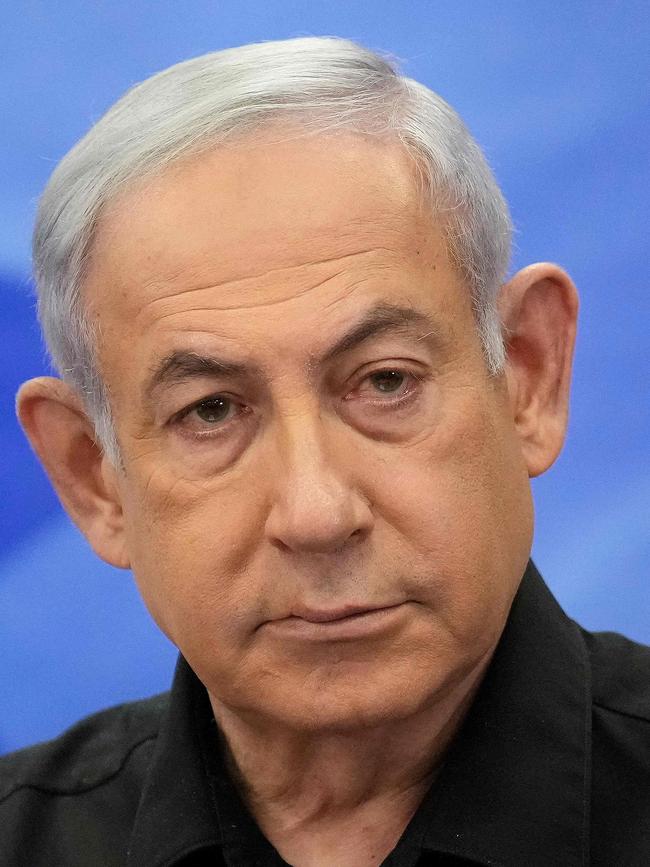
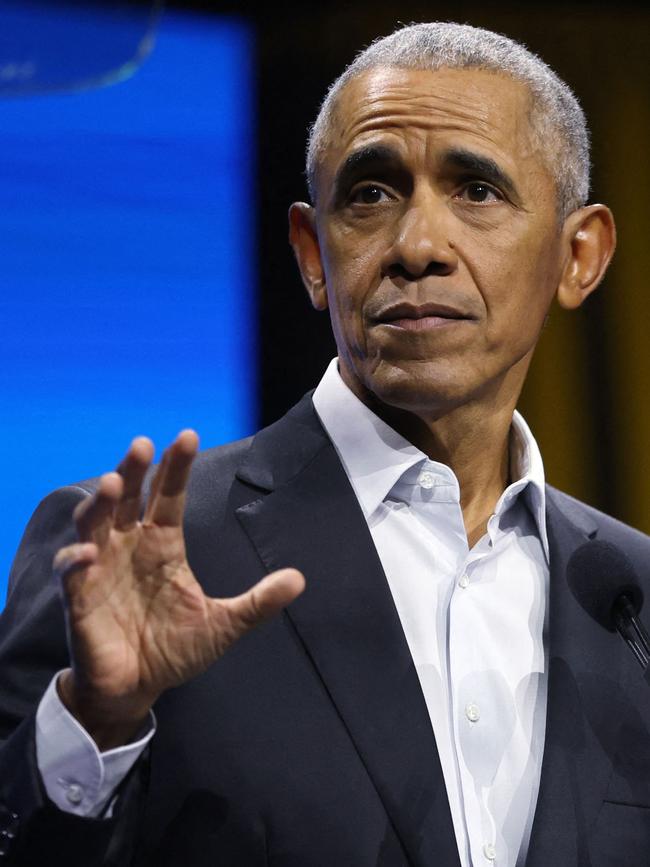
“As a result of the divide that has taken place in Israeli society around judicial reform, [Netanyahu] presides over a country that is deeply, deeply divided,” he said. “And because
ground incursions are accompanied by a return of soldiers in body bags, and casualties, (when) those numbers grow the disquiet and discontent towards Netanyahu will grow, and that will be a political challenge for him.
“And I don’t know how likely it is he will overcome that political challenge enabling him to oversee a long drawn-out ground campaign that will enable him to topple Hamas,” Mr Anthony said.
Opposition to the conflict is also stirring internationally, with world leaders including French President Emmanuel Macron and UN Secretary-General Antonio Guterres urging Israel to show restraint. Also this week, former US President Barack Obama penned a blog post warning Israel of the consequences of going too far in its goal of destroying Hamas.
Israel’s bombardment and restriction of aid to Gaza could “further harden Palestinian attitudes for generations” and “erode global support for Israel,” Obama wrote.
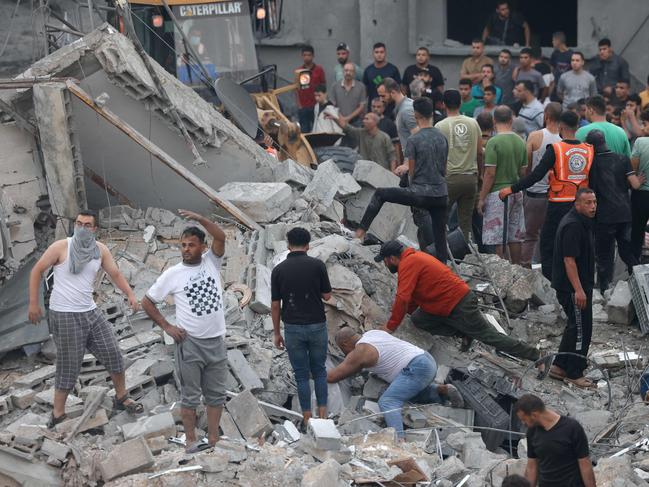
Closer to home, Israel’s pursuit of Hamas also risks inciting retaliation from any number of its enemies: Hezbollah militants in Lebanon, or state-backed aggression from Iran or Syria.
Attacks have already begun. The Pentagon confirmed on Wednesday that US and coalition forces had been the target of drone and rocket attacks ten times in Iraq and three times in Syria in the preceding week.
Dr Genauer said the possibility of future US involvement if the conflict escalated would be a deterrent for other Middle East nations thinking of joining the fray, or opening up a new front.
She doubted that Israel’s nuclear capability – never officially acknowledged by the government but considered an “open secret” in the region – was playing a deterrent role.
“I don’t think it’s a military option that is clear and present and on the table. The blowback internationally would be severe, even from allies,” she said.
She was sceptical the calls for ceasefires would be listened to at this stage.
“We will see an escalation of the violence before we will see some kind of de-escalation,” she said.
“Until Israel carries out the military operation they claim to be planning in the Gaza Strip, we won’t see willingness for de-escalation of the conflict and possibly some kind of ceasefire agreement.”
In other words: this will get worse before it gets better.


